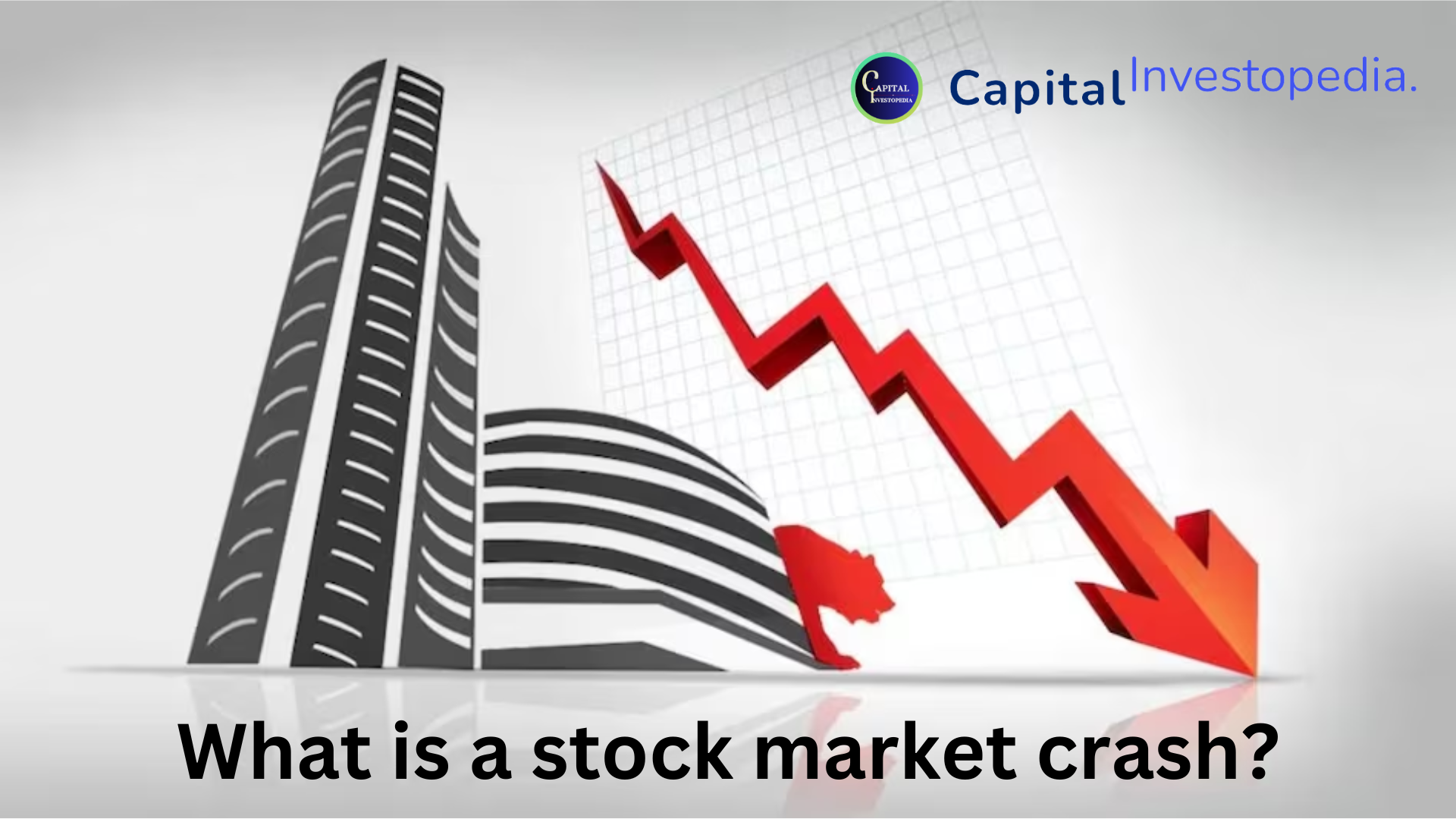A stock market crash refers to a sudden and severe decline in the prices of stocks traded on a stock exchange, leading to a significant loss of investor wealth. Stock market crashes are characterized by a rapid and substantial drop in stock prices across various sectors of the economy. These events can be triggered by a variety of factors, including economic downturns, geopolitical events, financial crises, or investor panic.
During a stock market crash, investor confidence typically plummets, leading to widespread selling of stocks as individuals and institutions rush to liquidate their holdings to minimize losses. This selling pressure exacerbates the decline in stock prices, creating a self-reinforcing cycle of selling known as a “panic sell-off.” As stock prices fall sharply, it can have far-reaching consequences for the economy, affecting consumer confidence, business investment, and overall economic activity.
Stock market crashes can have both short-term and long-term effects on the economy and financial markets. In the short term, they can cause significant volatility and instability in financial markets, leading to losses for investors and financial institutions. In the long term, they can also contribute to economic recessions or depressions if they severely disrupt consumer spending, business investment, and credit markets.
Some notable examples of stock market crashes in history include the Great Depression crash of 1929, the Black Monday crash of 1987, and the global financial crisis of 2008.
Explore more details about stock market crashes –
1. Causes: Stock market crashes can be triggered by various factors, including:
a. Economic Factors: Economic recessions, high unemployment rates, inflation, or deflation can erode investor confidence and lead to selling pressure in the stock market.
b. Financial Instability: Banking crises, excessive debt levels, or failures of financial institutions can undermine investor trust and trigger a market crash.
c. Geopolitical Events: Wars, terrorist attacks, political instability, or trade disputes can create uncertainty and negatively impact investor sentiment.
d. Speculative Bubbles: Excessive speculation and overvaluation of stocks or other assets can result in a market bubble that eventually bursts, leading to a crash.
e. External Shocks: Natural disasters, pandemics, or unexpected events such as the COVID-19 pandemic can disrupt economic activity and financial markets, causing a crash.
2. Impact: Stock market crashes have significant impacts on various stakeholders:
a. Investors: Individuals and institutions holding stocks may experience substantial losses in their investment portfolios during a crash.
b. Businesses: Stock market downturns can affect corporate profitability, access to capital, and business investment decisions, potentially leading to layoffs or bankruptcies.
c. Economy: Market crashes can negatively impact consumer confidence, leading to reduced spending, lower economic growth, and increased unemployment.
d. Financial System: Crashes can strain the financial system, causing liquidity problems for banks and other financial institutions, and potentially leading to credit crunches or systemic crises.
3. Duration and Recovery: Stock market crashes vary in duration and severity. Some crashes result in sharp, but relatively short-lived declines, followed by a swift recovery, while others can lead to prolonged bear markets lasting for months or even years. Recovery from a crash depends on factors such as the underlying strength of the economy, policy responses from governments and central banks, and investor sentiment.
4. Prevention and Mitigation: Governments and regulatory authorities implement various measures to prevent or mitigate the impact of stock market crashes, including:
a. Regulatory Oversight: Implementing and enforcing regulations to ensure transparency, fairness, and stability in financial markets.
b. Monetary Policy: Central banks may use monetary policy tools such as interest rate adjustments or asset purchases to stabilize financial markets and support economic activity during downturns.
c. Fiscal Policy: Governments can deploy fiscal stimulus measures, such as infrastructure spending or tax cuts, to boost economic growth and restore investor confidence.
d. Crisis Management: Authorities may intervene in financial markets to provide liquidity, support failing institutions, or implement emergency measures to prevent systemic collapse.
Overall, stock market crashes are significant events that can have far-reaching consequences for the economy, financial markets, and society as a whole. While they are difficult to predict or prevent entirely, understanding the underlying causes and implementing appropriate policies can help mitigate their impact and facilitate recovery.




